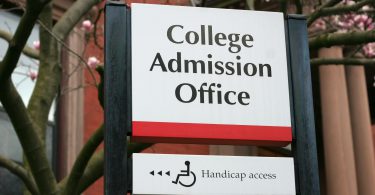In this article, we explore a question on every recruit’s mind: When is the best time to start reaching out to college coaches?
While it would be nice to give an easy answer, “Start contacting coaches on X day of X year,” generalizing “the right time” for any important event during the recruiting process can be tricky. Since each player’s skills “ripen” at a different time, players in the same graduating class will go through the same recruiting tasks or milestones at very different times. You can probably already see that each player’s unique developmental timeline also impacts when they should start contacting college coaches.
With so many different personal variables at play, there is no one-size-fits-all answer for the right timing to contact college coaches. Luckily, we can help you better understand what indicators in your development as a player will let you know the timing is right for you to reach out to college programs of interest.
Reasons for Contacting College Coaches
There are two practical reasons to reach out to college coaches:
- To get on a camp mailing list
- To get recruited
You can reach out for the first reason at any point and expect to be looped into that program’s camp schedule. When to reach out for recruitment purposes is the primary focus of this article.
Contacting Coaches: Common Mistakes
When players contact a program to express recruiting interest, they are inviting the coaches to evaluate their academic and baseball skills as a potential program fit. Coaches are flooded with dozens of inquiries like this each day, so they quickly try to determine if the player is worth more of their time. Many recruits will eliminate themselves quickly by making one of the following 3 mistakes.
Poor Communication Skills
Contacting coaches is a big step in the recruiting process, and it should be treated as such! Check out our article and YouTube on how to email college coaches the right way! Unfortunately, many recruits hastily write emails that are quickly deleted for various reasons (poorly written, no personalization, part of a mass email to many programs at once, addressed to the wrong person/school, lack of video, etc.). There’s no reason this should be you. We have plenty of resources to help you prepare and knock the email out of the park!
Poor Timing
As we have mentioned before, timing is everything in the recruiting process. When it comes to contacting college coaches, timing is especially important. The timing has to be right for the recruit and the program. For the recruit, this means they are physically, athletically, and academically ready for exposure. It also means they have taken the time to prepare the materials that coaches will need to quickly evaluate them (transcripts, skills video, contact info, etc.) and have personalized an email explaining why the program is right for you (see above!). For coaches, this means their program is ready to recruit players in your graduating class. Usually, the higher the level of play, the earlier that program will be looking for recruits. For a top D1 prospect, this could come as early as freshman year. For most mid-major D1, D2 and D3 programs, the bulk of the recruiting takes place in the upperclassmen ( junior and senior) years, even if they are building recruiting lists before then.
Many players make the mistake of contacting coaches before they have a recruitable skill set or before they have done the prep work necessary for quality communication. If you contact programs before your skill set meets the standards for their level, you run the risk of being ignored, or worse yet, crossed off of their recruiting list permanently. For this reason, rather than force exposure and evaluation early, it makes sense to be patient and contact coaches when you have the recruitable skills they may want and during the time they are looking for it. It’s also important to note that there are recruiting rules that limit when college coaches are able to contact you back for recruiting purposes. If you are contacting coaches before they can contact you back, always include the contact information of your coach so they can play middle man and coordinate communication.
Inappropriate Skill Set
Many recruits write great emails, at the right time, but to programs that aren’t appropriate for their skill set (athletically, academically, or otherwise). There’s actually nothing wrong with this type of mistake, assuming it only represents a portion of your emails. Casting a wide net is important. Reach out to schools of various types and levels when you feel you are ready. The response (or lack of response) you get will help you figure out where your skill set is valued and and the type of schools to target. It’s okay to have “reach schools” and get rejected. As we have discussed, rejection is part of any recruitment and a big help in finding your fit. If none of your emails get a response, it’s probably time to re-evaluate where your skill set belongs. Being self-aware and having an objective view of your abilities is one of the most important keys to finding a fit.
As we discuss at length here, patience is also an important attribute of successful recruitments. You don’t need to rush important steps of the recruiting process, like contacting coaches and seeking exposure. Bet on your work ethic. Focus on development. Don’t force your recruitment before you are ready. Learn more about verbal commitments and why committing early isn’t all it’s made out to be. There are 4 years of high school and it’s okay to use all of them to find your lasting college baseball fit.
4 Ways to Know It’s Time to Contact Coaches
We’ve discussed common mistakes recruits make when contacting college coaches, now we’ll highlight 4 different ways to know the time is right for you to contact coaches.
1. You receive interest from a program at your desired level of college competition
If you receive genuine interest from a school at a certain level, it is a safe bet that schools of equal or lesser competition level may also be interested in you as well. Once you check to make sure the interest is genuine, you should feel comfortable contacting other schools at a similar competitive level. For help determining if interest is genuine, use this KPB resource or communicate with the coach directly.
2. When your skills match the standard for the level you wish to play
If you or someone who knows the different levels of college baseball well (your coach, a scout, etc.) can objectively say that your skill set or athleticism is on par with players at your desired level of competition, you can start reaching out to coaches at or below that level. It’s important that this honest and objective evaluation is accurate. If you contact schools before you have demonstrated the appropriate tool kit, or are not objective and honest in evaluating your skill level, you do so at your own expense. Coaches will ignore emails or worse, write you off as not good enough.
3. When you know the exact school or have several schools that really fit your criteria and you can sell how you are an academic and baseball fit
If you know the exact school or have several schools that you would want to attend and can objectively say you meet the level of play and academic criteria for the school, it’s time to reach out and start creating a relationship with the coaches. Gauge interest levels, get to know them, develop an understanding of what they are looking for, and get to work showing them you can be the student-athlete they want. Attending camps at programs like this can be a huge help. This strategy works especially well for niche or high academic schools with very specific admissions requirements or local programs that can easily monitor your progress.
4. If you reach the summer before senior year and have not met criteria 1-3
If you get to the summer before your senior year and have yet to meet any of the first three criteria listed above, it’s time to contact coaches, create exposure, and go for it. Many college bound players develop late, and prospects still get interest and offers as late as the summer after graduation. If you’ve reached your last year of high school without any interest, you have nothing to lose. Target schools of the appropriate level and put your best foot forward. If you are an uncommitted senior, start here.
Concluding Thoughts and Additional Resources
Contacting college coaches is an important part of the recruiting process. You only have one shot at making a good first impression. Before you start reaching out directly to programs of interest, make sure you’ve done your homework and taken the time to prepare. With patience and planning, your emails and social media will put you in a better position to find a lasting college baseball fit.
For additional resources on contacting coaches and seeking exposure, consult our Contacting Coaches The Right Way, Seeking Exposure at the Right Time, our free online course Creating a Successful DIY Recruiting Video, and Using Social Media to Get Recruited. After reading up, take the time to write a well-written, personalized email at the appropriate time to ensure you give it the best chance of being read. Good luck!







